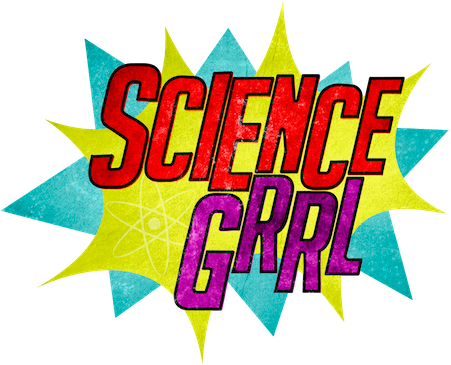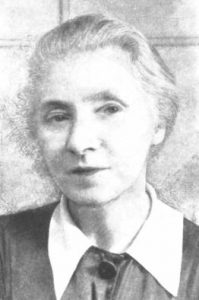Untold Stories – Setting the Record Straight
Our network of ScienceGrrl members runs to over 400 nationwide. Where possible, we link our members with local chapters, headed up by enthusiastic chapter leads. Chapters provide opportunities for informal networking, peer support, and grass-roots activism and public engagement, often in partnership with local initiatives.
This post is the second of a short series by Sarah Hughes, our chapter lead from Aberdeen, in which she reflects on activities and organisations she is currently currently engaged with and offers some ideas on how these can connect with the activities of ScienceGrrl. Sarah is a physical oceanographer and she currently works for Marine Scotland Science, a department of the Scottish Government. She is also a workers rights advocate for Prospect Union.
A little more than a year ago, a scientific colleague of mine told me a story about the first woman who worked in his organisation, what is now the Centre for Environment, Fisheries and Aquaculture Science (CEFAS). I was immediately fascinated, and it made me realise that until now, I haven’t paid much attention to the history of women in my particular field of science. After doing some research and finding some publications that mentioned her, as well as a little bit of floundering on Wikipedia, I finally worked out how to start a Wikipedia page for this woman, Rosa Mabel Lee. She was the first women to be employed formally as a government fisheries researcher, and although her career was short, in that time she made a significant and lasting contribution to her field.
Recently, a leaflet had been prepared about some of the past directors of the Marine Laboratory in Aberdeen, and unsurprisingly, these were all men. Now, this is not to say I’m not interested in the men who have lead marine research. I actually believe we don’t do enough to recognise those who have worked in scientific fields before us and there are many forgotten stories of men and women. Science, in its own way has a touch of celebrity culture about it and as Tania Browne so eloquently explained in an earlier post, behind all big science successes there have been a team of technicians or ordinary scientists (men and women) who’s contribution may never be fully acknowledged. Despite this, I still feel we must work hard to uncover the stories of the women in science who may otherwise be forgotten.
In March, I was invited to take help organise an event for British Science Week, called the Untold stories of Women in Science. At the planning stage, we discussed what these ‘untold stories’ and it came to me that this was an ideal opportunity to find out a little bit more about the first woman who worked at the Marine Laboratory in Aberdeen. I got a head start from a colleague who was already researching the lab and he showed me the obituary of Helen Stormonth Ogilvie, who I believe was the first women who worked for the Fishery Board for Scotland, the organisation which is now called Marine Scotland. Helen was born in Dundee, and worked her whole life researching marine plankton, the tiny plants and animals that live in the seas and oceans. I have more to come on Helen Ogilvie, but that will be saved for another blog post.
When researching Helen, I discovered other fascinating stories and came to realise that in many science laboratories and organisations, there have been women who were not employed, but were the wives of prominent scientists and they worked alongside them as unpaid and on official assistants. I find this idea fascinating, but of course if would be very difficult to determine what contribution, if any, these women have made to research. However, in a competitive field like science, I can see the benefit of having a trusted partner as an assistant and these stories reminded me of the opening lyrics of that famous Annie Lennox song “Now there was a time, when they used to say, that behind every great man, there had to be a great woman.”
But as well as these unpaid assistants, there are also many female scientists who studied and worked as scientists in their own right, pioneering women who took up posts at a time when the odds of scientific success were heavily stacked against them. Many organisations are recognising that they need to get women’s faces in their ‘halls of fame’. For International Women’s Day 2016, the Scottish Government announced that they would rename some of their internal meeting rooms and take the opportunity to get a 50:50 gender balance for the rooms. This was an opportunity not to be missed, and of course I have nominated Helen Ogilive for her own room, I will let you know if she got it.
So I want to encourage you all to dig a little, and find out who were the first women in your organisation or field of science and make sure their stories get told. There are some excellent examples of collected stories that you could help out with, try the Trowel Blazers for some inspiration. If there is published information about your subjects, then make sure she has an entry in Wikipedia, either by starting an entry or expanding/editing an existing article. Or contribute to the Women in Science project on Wikipedia, which is being led by the fabulous Emily Temple-Wood.
Wikipedia is not a place for original research, it can only be used to collate and summarise other published information. If your subject really hasn’t yet had her story told, then use your internal newsletter/website as a starting point and develop it from there. You could maybe write up a short story or give a talk about her at a science festival or other suitable event. You might even be inspired by Dr Catherine Duigan of Aberystwyth University and give a talk on your subject for International Women’s Day in 2017.
These are just a few ideas, the ultimate aim is to find out about the women who worked in your organisation and tell their stories in whatever way you can. Don’t let these stories get lost in dusty archives and don’t wait for someone else to write it for you. Sisters, just do it for yourselves.

